
“Impress your guests with telekinetic tricks”. Sure, because I’d be massively impressed if my host rendered my spoon useless before I’d even got to the soup.
You are browsing this site using Internet Explorer 7. For a better experience, you may want to upgrade to a newer browser.

A weblog by Christopher Miles

“Impress your guests with telekinetic tricks”. Sure, because I’d be massively impressed if my host rendered my spoon useless before I’d even got to the soup.
The New York Times reviews Jaron Lanier’s You are not a gadget, declaring it “necessary reading for anyone interested in how the Web and the software we use every day are reshaping culture and the marketplace.”
I’m intrigued by Lanier’s comments about books in particular (“If the books in the cloud are accessed via user interfaces that encourage mashups of fragments that obscure the context and authorship of each fragment, there will be only one book”) and find myself in sympathetic agreement with his suggestion (hardly unique to him, of course) that pop culture has “entered into a nostalgic malaise”.
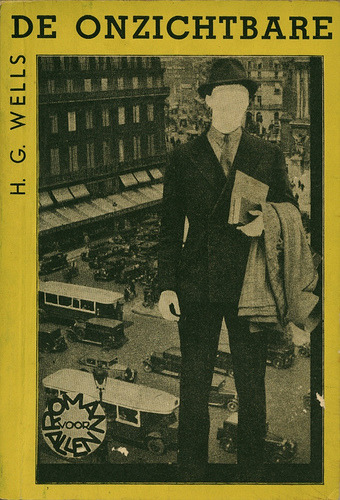
Dutch edition of H. G. Wells’s The Invisible Man (or, Honey, I Blew Up The Invisible Man).
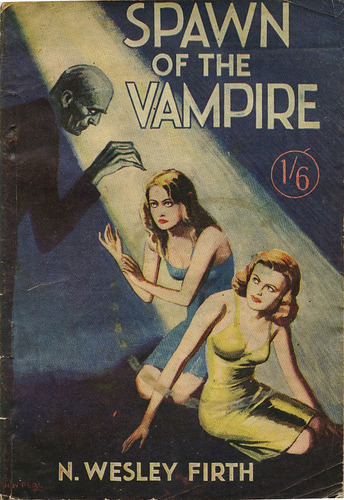
I know which one’s going to be eaten first.
Hint: it’s the one who’s declining to participate in Mr Vampire’s “how to operate a hand puppet” lesson.
First rule of vampires, people.

This is the ex libris bookplate you’d see if you happened to borrow a book from the personal library of Benito Mussolini.
Yeah, I’d be giving it back pretty effing smartly too, finished or not.
Gonna start a new genre. It’s called punkpunk.
I’ll figure out the rest later.
Fascinating piece by Sarah Churchwell on some famous writer-editor relationships.
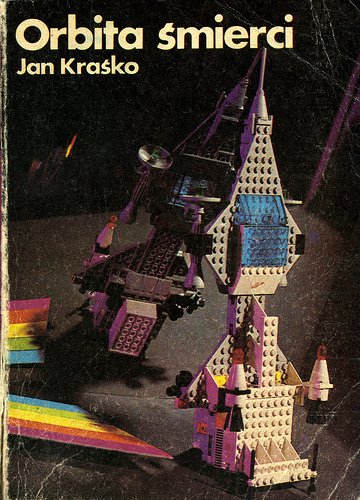
This was the first major LEGO® set I owned. Clearly I will never achieve my dream of being the first author to include it on one of their book covers. Damn you, Jan Kraśko. Damn you to space.
As the publication date nears for Eoin Colfer’s Hitchhikers Guide to the Galaxy continuation novel, the Guardian surveys the place of the original work (which is to say, the radio series, novels and TV series combined) in the British psyche. “The Hitchhiker stories make up a sort of folk-art depiction, like on a tribal carpet, of the late-1970s English middle-class cosmic order,” says Jenny Turner.
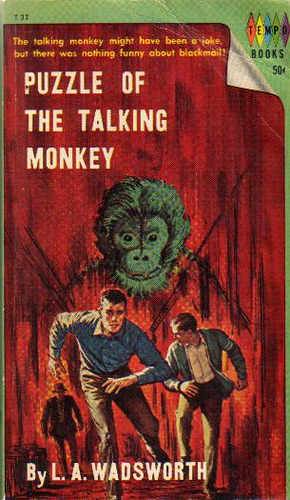
Either I used to own this book, or the cover artist has access to my childhood nightmares.
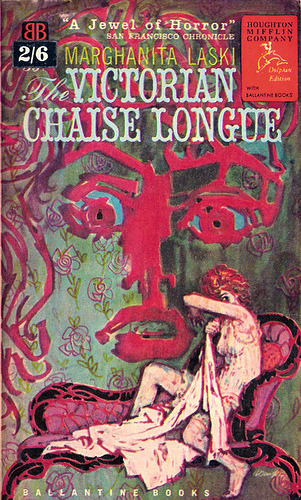
It’s happened to all of us. “Be careful,” says the lady at the Salvos. “Your antique bargain may be a sink of malignancy.”
(jovike)
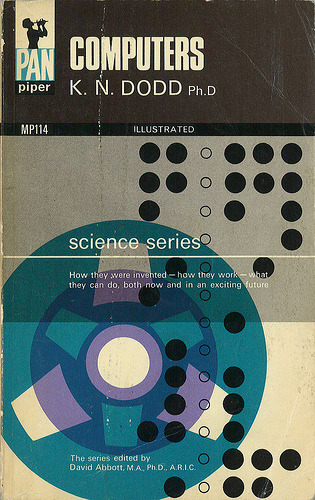
“Computers. How they were invented – how they work – what they can do, both now and in an exciting future.”
I wonder if K. N. Dodd Ph.D predicted that computers in his “exciting future” would mainly be used for looking at people in various stages of undress, grammatically-challenged cats, and grammatically-challenged cats with clothes on.
Another way to access the mind-bogglingly huge archive of full text digitised books at the Internet Archive; very neat site design and great options for refining searches.
Includes a selection of horror and Gothic fiction, scientifiction, fantasy and sword and sorcery.

Discovered while looking at Wikipedia entries on people more successful than me. (By definition, anyone who has a Wikipedia entry.) But at least failure and obscurity are effective safeguards against this kind of Wiki-vandalism.
“If novels are going to combust imaginatively, shouldn’t they be written spontaneously?” writes Hannah Davies.
A look at the bizarre adventure-romance novels set in the Australian interior at the turn of the twentieth century, including George Firth Scott’s The Last Lemurian.
Melbourne in colonial children's novels.